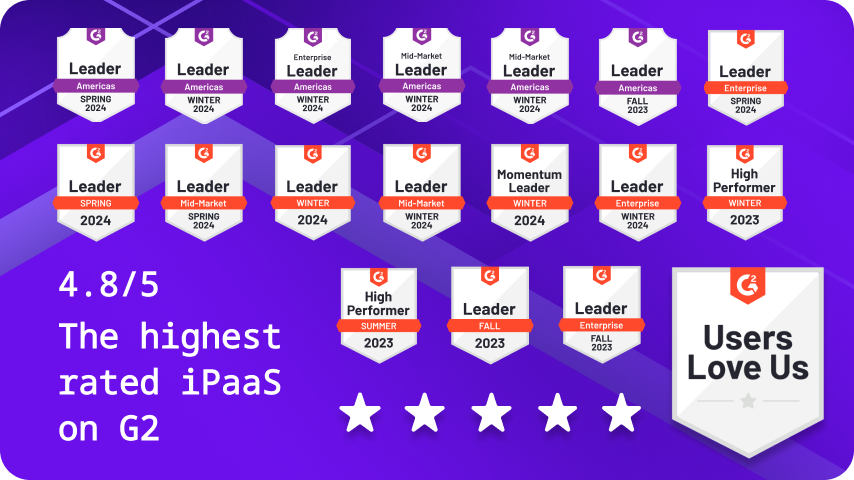
A necessidade de integrar múltiplas aplicações e serviços tornou-se mais urgente do que nunca. Como resultado, muitas organizações recorreram a APIs (Interfaces de Programação de Aplicativos) como uma forma de permitir uma comunicação perfeita entre diferentes sistemas. No entanto, essa abordagem, quando aplicada a casos de utilização internos, pode levar a custos mais elevados e a uma flexibilidade limitada.
Os desafios das abordagens legadas lideradas por API
Quando se trata de reutilização interna, as abordagens tradicionais baseadas em API, embora eficazes, também podem apresentar algumas desvantagens não intencionais. Aqui estão alguns exemplos:
- Acoplamento apertado: as APIs podem criar um acoplamento forte entre aplicativos, dificultando a evolução ou alteração de um aplicativo sem afetar outros. Isso leva a um nível de esforço em cascata quando chega a hora de fazer alterações ou atualizações nos aplicativos e em suas dependências.
- Esforços de codificação redundantes: quando cada aplicativo tem sua própria API, os desenvolvedores precisam duplicar códigos e esforços em vários projetos. Embora as APIs por design sejam uma forma de reutilização, acessá-las ainda envolve escrever código para chamar essas APIs, validar os dados, etc.
- Oportunidades de reutilização desconhecidas: sem uma compreensão clara das oportunidades de reutilização, as organizações podem acabar investindo em APIs que, em última análise, não têm muita utilidade. É comum acabar com uma API que expõe centenas (se não milhares) de funções, mas raramente todas essas funções são usadas.
- Sobrecarga administrativa: as APIs devem ser protegidas e gerenciadas, exigindo sobrecarga contínua para garantir a conformidade. Quando o objetivo é expor uma função para acesso de outros desenvolvedores internos, o processo é mais complexo do que apenas escrever a API e publicá-la.
- Não é apropriado para API: nem tudo pode ou deve ser exposto como uma API – conexões diretas com bancos de dados, sistemas legados como o AS400 ou aplicativos internos de clientes. Os desenvolvedores enfrentam então a difícil tarefa de transformar esses sistemas desafiadores em funções reutilizáveis, sem publicá-los como uma API.
>> Agende uma demonstração personalizada com nossa equipe de especialistas e veja como o iPaaS da Digibee trará eficiência ao seu negócio.
Apresentando as Cápsulas, uma nova maneira de abordar a reutilização interna
Na Digibee, acreditamos que existe um jeito melhor. A nossa abordagem inovadora em reutilização interna baseia-se no conceito de “as Cápsulas” — bibliotecas de códigos reutilizáveis, essencialmente funções, que podem ser acessadas de qualquer workflow.
Os benefícios das Cápsulas
Ao transformar workflows em bibliotecas de códigos reutilizáveis, você pode:
Evitar acoplamento apertado
- Quebrar o monólito da API e desenvolver funções individuais de forma independente, sem a necessidade do ciclo de vida completo da API
- Remover o risco de problemas em cascata para dependências downstream quando alterações forem feitas
- Ganhar flexibilidade para publicar alterações em workflows automaticamente ou explicitamente
Eliminar esforços de codificação redundantes
- Reduzir a necessidade de código duplicado e esforço em vários projetos
- Fazer facilmente o drag-and-drop com Cápsulas como funções reutilizáveis, com formulários de entrada simples e validação integrada
- Eliminar a necessidade de código para chamá-los ou verificar os dados que retornam
Evitar oportunidades de reutilização desconhecidas
- Utilizar as Cápsulas em qualquer workflow construído em Digibee
- Criar funções úteis que sejam valiosas em outros cenários e publique-as como Cápsulas para qualquer outro desenvolvedor acessar
- Transforme qualquer Cápsula em um microsserviço orientado a eventos ou criar APIs com eficiência a partir de um grupo de Cápsulas. Combine a flexibilidade das Cápsulas com recursos completos de API quando necessário.
Reduzir a sobrecarga de manutenção
- Publicar e gerenciar rapidamente funções reutilizáveis para outros desenvolvedores utilizarem em workflows dentro da plataforma
- Eliminar a necessidade de gerenciar e distribuir chaves de API
- Somente desenvolvedores podem acessar as Cápsulas, fornecendo uma distinção clara de acesso
“Conectores” personalizados
- Pegar sistemas legados como AS400, bancos de dados e aplicativos personalizados e transformá-los em funções
- Evitar o atraso de esperar que os fornecedores de integração ofereçam suporte a aplicativos de nicho, criar rapidamente seus próprios conectores da mesma forma que criaria um fluxo de integração
- Criar uma coleção de funções altamente reutilizáveis específicas para sua organização/equipe
Abordagem tradicional liderada por API
- Acoplamento estreito entre aplicações limitando a flexibilidade
- Duplicar código e esforço em vários projetos, diminuindo a produtividade
- Investimento desperdiçado de tempo e dinheiro em APIs que raramente são usadas
- Manutenção e segurança complexas a longo prazo
Cápsulas Reutilizáveis da Digibee
- Flexibilidade e escalabilidade com funções individuais trabalhando de forma independente
- Acelere a produtividade com código reutilizável em vários projetos
- Simplifique a eficiência com recomendações baseadas em IA durante o desenvolvimento
- Gestão simples
A solução econômica e flexível
Com as Cápsulas, você pode:
- Executar workflows de forma incorporada: comece rápido e evolua com agilidade sem a sobrecarga das APIs tradicionais.
- Compor e decompor APIs completas: Converta APIs completas em Cápsulas quando justificado pelo ROI.
- Execução baseada em eventos: Execute Cápsulas baseadas em eventos, reduzindo custos e complexidade.
Recuperando a agilidade em sua arquitetura baseada em API
Ao adotar uma abordagem baseada em Cápsulas para reuso interno capsule, você pode recuperar a agilidade e a flexibilidade essenciais para impulsionar a inovação e o crescimento. Com a Digibee, você tem ambos – APIs completas e Cápsulas que oferecem uma reutilização semelhante à API sem a sobrecarga usual.
Embora as abordagens tradicionais baseadas em API possam parecer atraentes à primeira vista, elas geralmente levam à complexidade, aos altos custos e à reutilização limitada. Ao adotar o poder das Cápsules, você pode simplificar a reutilização e a evolução, reduzir custos e recuperar a agilidade em sua arquitetura orientada por API.
Abrace o poder da reutilização com Digibee
Explore o potencial transformador das Cápsulas da Digibee. Aprenda mais sobre nosso produto ou, se preferir, fale com nossa equipe para entender como você pode simplificar e acelerar seus projetos de integração.









